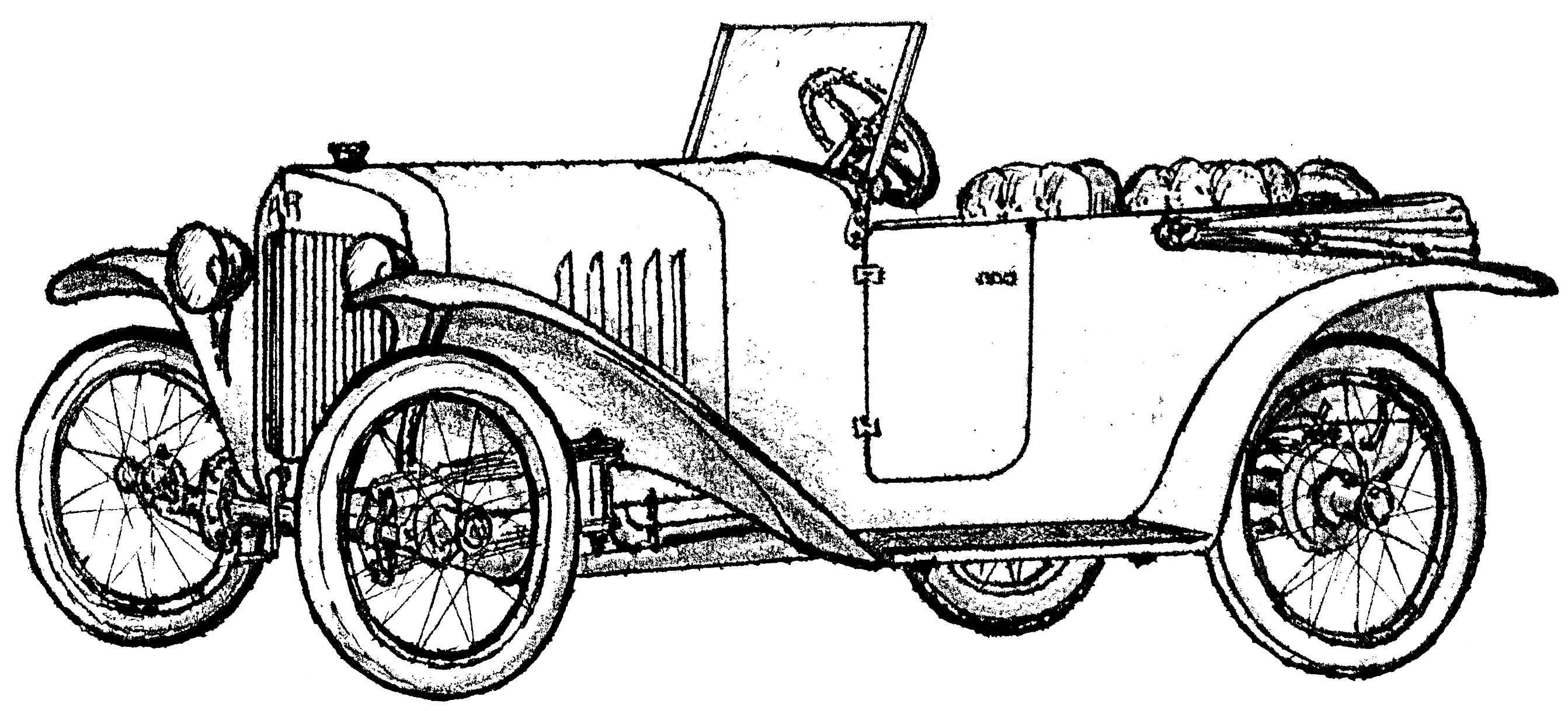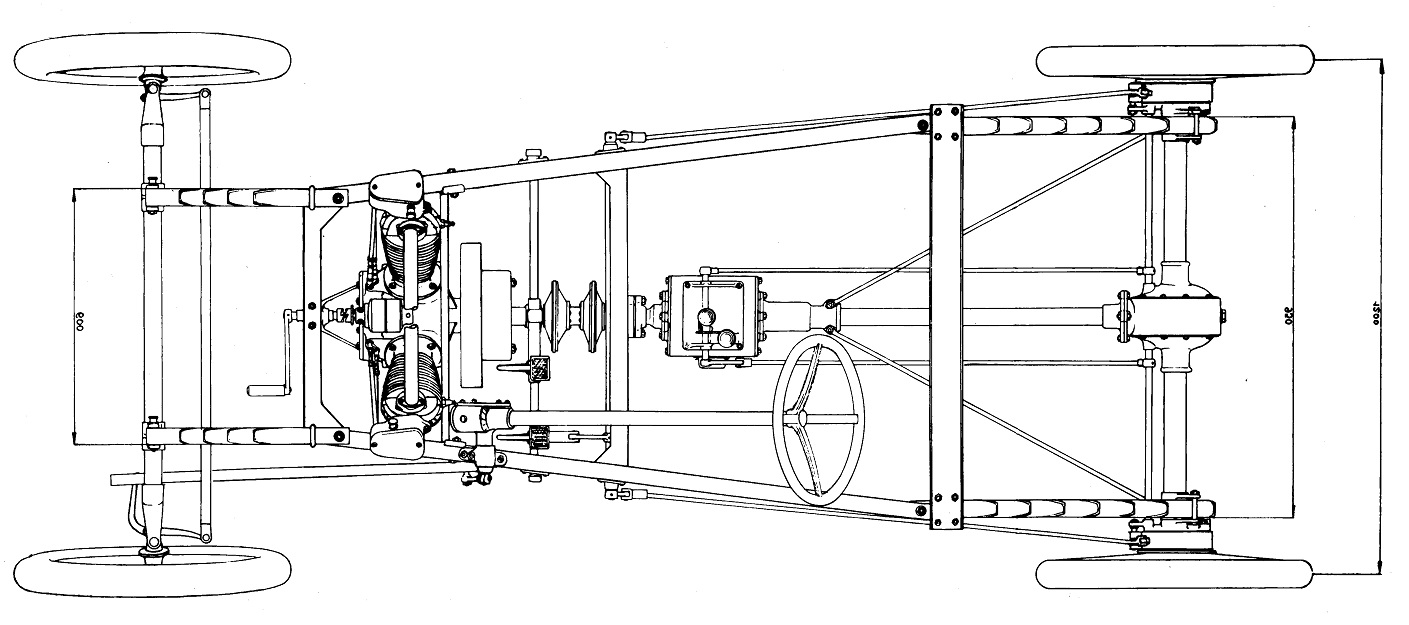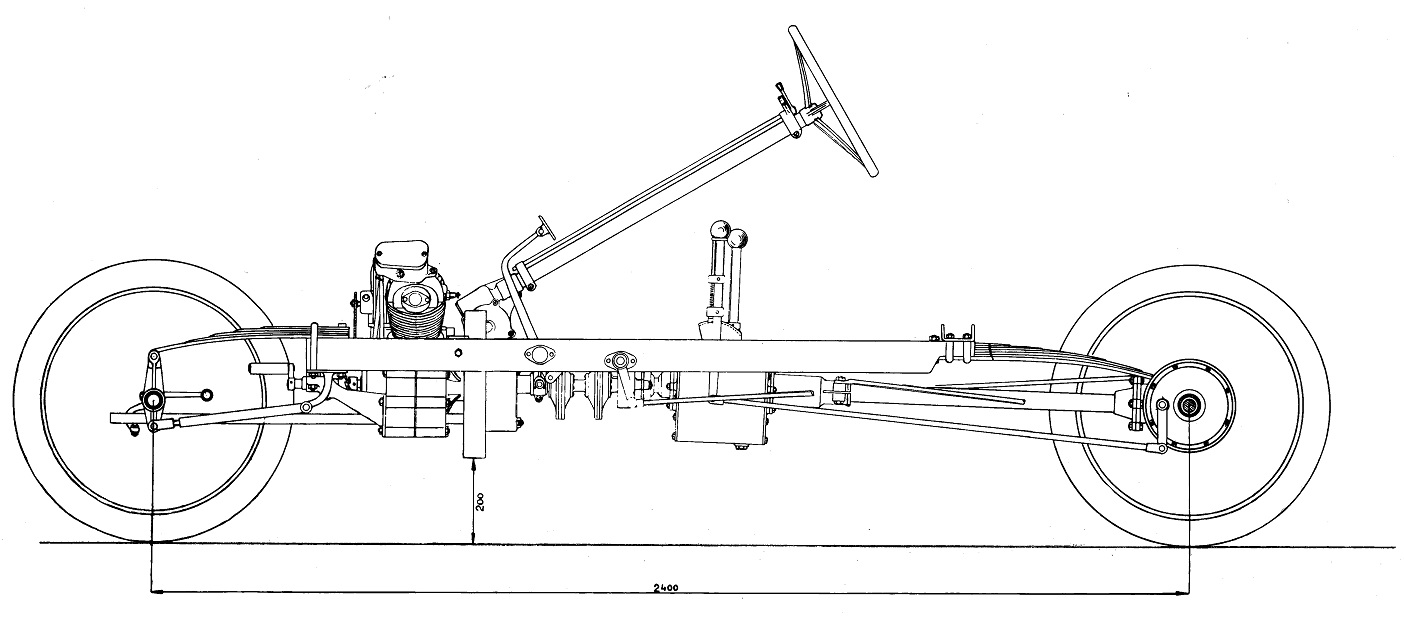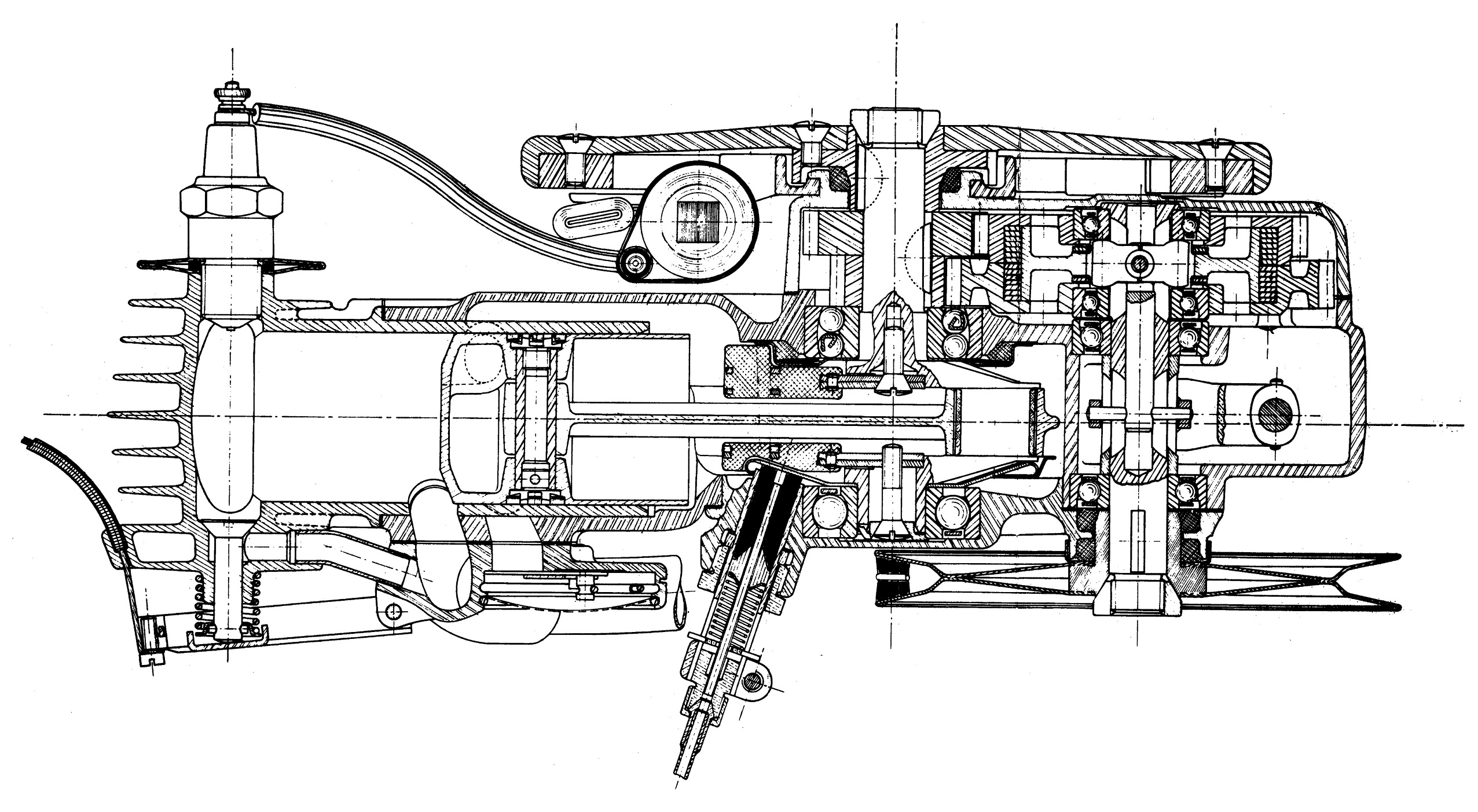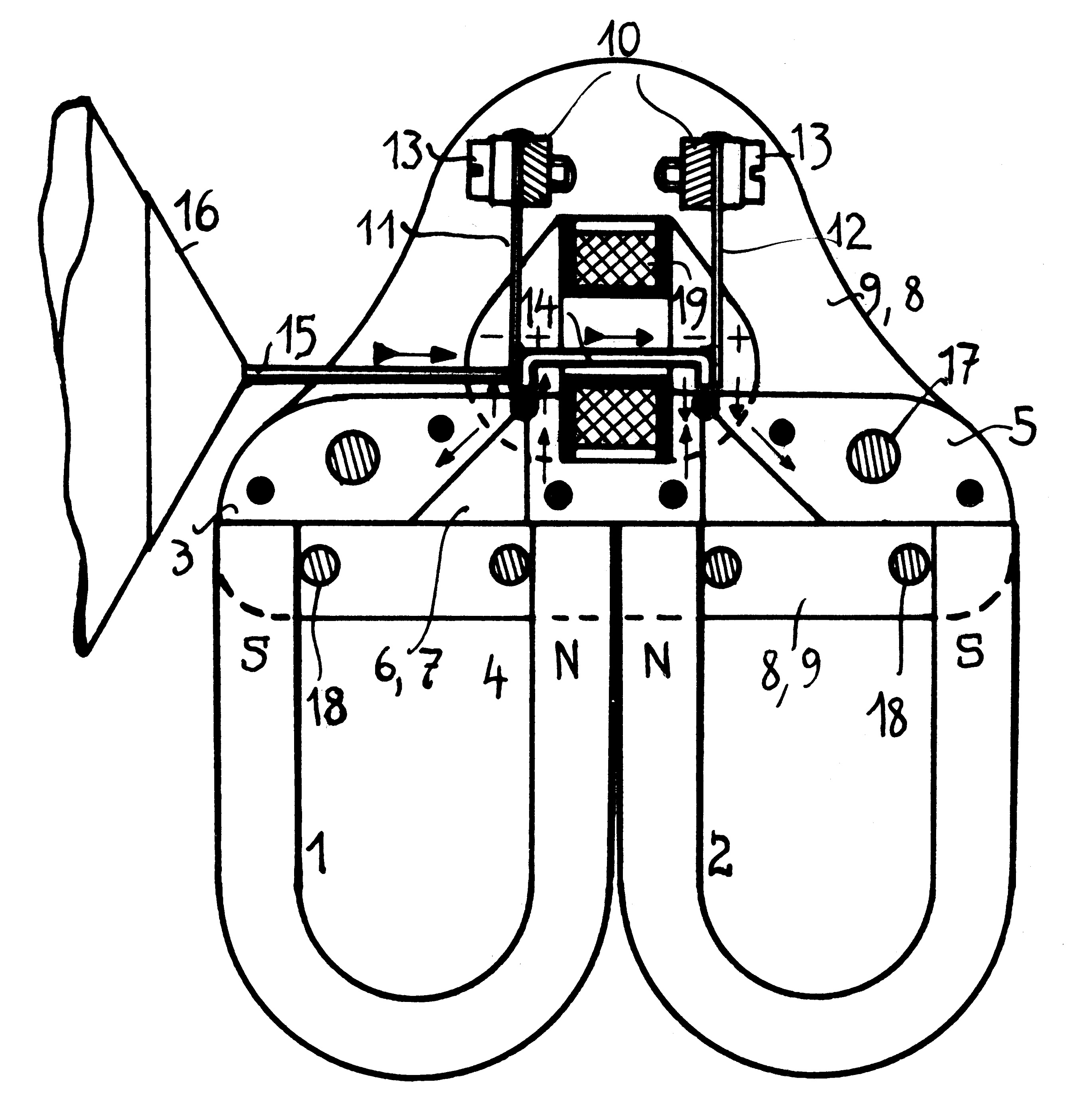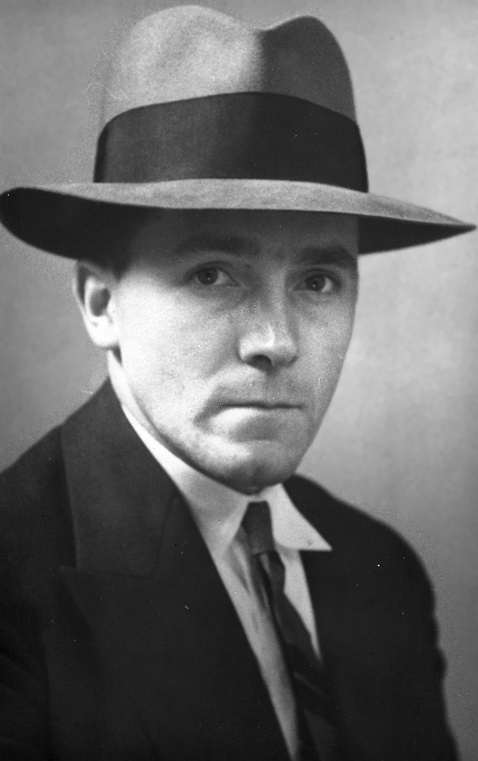The Beginning of a Career
–
Study at the university or start working?
During the last few years of his studies at the TGM Hermann Papst starts thinking about his professional future could look like. He considers an occupation within the patent administration, continuing his studies with physics or working as a designer and developer for a company.
In the end he decides to enter the practical technical sector. Firstly because of the economic difficulties Europe has to face after World War I, but also because he is confident to be ready and well prepared for the professional tasks awaiting him.
Prof. August Grau, the dean of the TGM recommends his student to the company “Dr. Paul Holitscher & Co. Vienna”, by writing a letter to them that states: “Mr. Hermann Papst is a good and mostly independent designer skilled calculator and a clear thinker person.”
The path into a profession is thus clear.
Development of Automobiles – is probably the one technical field, which fascinates Hermann Papst more than any other. With the support of a fellow student he finds his first job. The automobile-development and sales company “Rumpler & Ringer” offers him to participate in the development of their newest compact vehicle.
Hermann Papst designs an Automobile with a two-cylinder four -stroke engine and a new
roller soring suspension for the company Rumpler & Ringer in Vienna in 1923
–
–
Ready after a short period of time the entire development project is put in his hands. He sketches, designs and improves a model with a two-cylinder four-stroke engine with overhead controlled valves. He also develops a new type of wheel suspension called “Wälzfederung” (Roller spring suspension).
Design-Sketch of the Chassis including the drivetrain of the Automobile-Design
–
After Hermann Papst has worked for the company for 6 months, the company is bankrupt. The car designed by Hermann Papst never goes into production.
For a few weeks he stays with the “Wiener Kleinmotorenbetrieb”, until this company is bankrupt as well.
Just in time he can join a small Electrics firm already during his time at the TGM he tried to assess how to employ very slim sheet metal scrap for a largest possible electric motor, by using a kind of recycling procedure. He continues to pursue that path and later even receives a patent for it.
To distract themselves from the depressing situation of Vienna’s lasting inflation Hermann Papst and some of his university friends start constructing a moped prototype. To improve the construction he invents a carburator that cannot clog. A disk rotates with the engine in accordance with its revolution and is attached to the alternator test wise.
The bicycle engine with the integrated, wiper carburator
–
He applies for a patent for the carburator after continued development in July of 1940. Unfortunately his invention is never monetized, all the companies to which he offers it, refuse. Amongst then Ford as well as Bosch the “Deutsche Vergasergesellschaft” (Pierburg) and Pallas (both situated in Berlin).
–
Moving to Berlin
It is uncertain when exactly Hermann Papst moves to Berlin but he works as a so called “freelance” employee from 1925 on, for an internationally acting US businessman, who has set up his business in Berlin. Edward D. Feldman deals with national and international patent rights in the field of electronics and telecommunications. Later on Hermann Papst will share quite a few US patents with Feldmann, among them one for the “Polspaltmotor” in 1937.
Hermann Papst gives important impetus to the construction of modern loudspeakers during his time in Berlin
–
Among other things Hermann Papst develops a Speach-Machine, a loudspeaking telephone and multiple types of loudspeakers for Feldmann. This contract excerpt informs us about his employment relationship with Mr. Feldmann, which had probably appeared appealing to Hermann Papst, because his employer paid his salary in foreign currency:
Hereby Mr. Papst is obliged to apply for all the patents which have not been registered in Mr. Feldmann’s name yet, to be assigned to his name. All the necessary signatures, especially the assignments concerning those patents, have to be given in front of the American consul.
In exchange Mr. Feldmann will pay him the following compensation, in case he starts the production of the loudspeakers designed by Hermann Papst:
At a monthly production of
1.000 pieces: 3 %
1.500 pieces: 4 %
2.000 pieces: 5% and more
Hermann Papst during his time in Berlin at the end of 1927
–
–
The missing coin “An uncommon internal enrichment”
On December, 19 1925 Hermann Papst makes an experience that will pursue him throughout his entire life. Because Mr. Feldmann cannot pay him his salary that evening, he decides to walk home, he does not have enough money to buy a tram-ticket. As he is distracted for a moment and does not pay attention to the street, because he is greeting a friend on the other side of the road, he is hit by a car, whose driver could not see the street anymore, due to lacking shield windscreen wipers and it was snowing strongly.
Hermann Papst falls to the ground, hits his head on the curb and becomes unconscious. He is taken to the nearest hospital but loses a lot of blood and has to stay there for Christmas Eve. There he shares a room with a whole lot of active Battle-tested socialists and communists, whose radical words and rallying cries shock him. Therefore it surprises him even more, that especially those terrifying men sing along the Christian Christmas Carols, that are sung in the hospital that night, with such touching zeal.
The picture of those singing men never left his mind, and he might even have seen it as a sign therefore, that deep inside of every human being there is a longing for the message of the gospel so full of love and hope.
During his stay in the hospital he once got up at night, to find out where a constant whining he heard was coming from. He found a 14 year old boy who suffered from cretinism. For security reasons he was tied to his bed. He could neither talk properly, nor move out of his own will.
In a biographic study, his 14 years old grandson Constantin Papst handed in for a midterm paper in school about Hermann Papst’s again and again verbalizes life lesson by learning how blessed he is through being healthy. Constantin Papst’s rightful conclusion is: “In that way, the missing coin enriched his soul in a special way.”
Elsewhere Hermann Papst himself states laconically that from this day on, that “fortune is everything that is not misfortune”.

